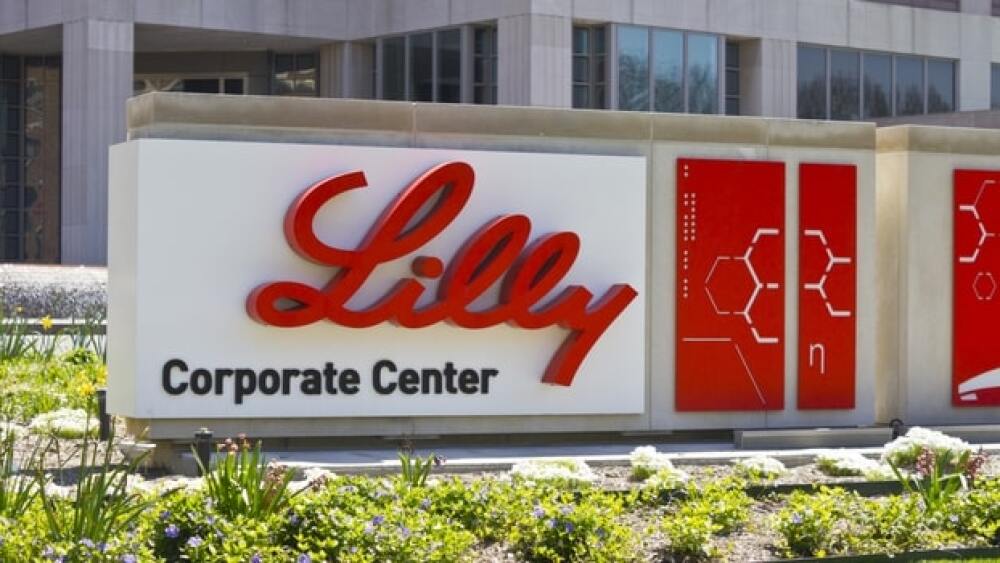Eli Lilly is continuing their other trial in mild-to-moderate COVID-19 patients and stated they “remain confident … that bamlanivimab monotherapy may prevent progression of disease for those earlier in the course of COVID-19.”
Jonathan Weiss / Shutterstock
In mid-September, Eli Lilly and Company announced interim proof-of-concept data from its BLAZE-1 Phase II clinical trial of LY-COV555 (bamlanivimab), its neutralizing antibody therapy for COVID-19. That study enrolled mild-to-moderate COVID-19 patients who had been diagnosed in the outpatient setting. This study is continuing.
However, a separate study of the antibody in hospitalized patients has been halted. About two weeks ago an independent Data Monitoring Committee paused enrollment in this trial because of a potential safety issue. The National Institute of Allergy & Infectious Diseases (NIAID), the study sponsor, could not verify the safety issue, but their analysis also indicated there was little likelihood the antibody would help the hospitalized patients.
As a result, they have halted the study in hospitalized patients.
LY-CoV555 is a potent, neutralizing IgG1 monoclonal antibody directed against the spike “S” protein on SARS-CoV-2, the virus that causes COVID-19. The antibody came out of a collaboration between Lilly and AbCellera.
The NIAID stated, “bamlanivimab is unlikely to help hospitalized COVID-19 patients recover from this advanced stage of their disease.”
Eli Lilly is continuing their other trial in mild-to-moderate COVID-19 patients and stated they “remain confident … that bamlanivimab monotherapy may prevent progression of disease for those earlier in the course of COVID-19.”
Both Lilly and NIAID are working to put together other trials involving the antibody, typically targeting patients with less advanced disease.
Lilly, as well as competitor Regeneron, have requested emergency use authorization (EUA) for their respective antibody cocktails. Lilly indicates its request is based on other data suggesting it helps non-hospitalized patients and plans to continue seeking EUA.
Lilly also issued its third-quarter financial reports today. In part of the report, they noted additional data from an interim analysis of the BLAZE-1 trial demonstrated that combination therapy with two of Lilly’s antibodies, bamlanivimab and etesevimab (LY-CoV016) decreased viral load, symptoms and COVID-related hospitalization and ER visits. It has initiated BLAZE-2, a Phase III trial of bamlanivimab for prevention of COVID-19 in residents and staff at long-term care facilities in the U.S. It has also inked a manufacturing collaboration with Amgen to increase the supply capacity for Lilly’s potential COVID-19 therapies.
Lilly also inked a deal with the Bill & Melinda Gates Foundation, as part of the COVID-19 Therapeutics Accelerator, to improve access to future Lilly therapeutic antibodies under development for prevention and treatment of COVID-19 to benefit low- and middle-income countries. And both Lilly and Incyte Corporation presented data demonstrating baricitinib in combination with Gilead’s remdesivir decreased time to recovery and improved clinical outcomes for patients with COVID-19 compared to remdesivir alone. Lilly, based on that data, submitted an initial request to the FDA for EUA.
For the quarter, Lilly’s global revenue was $5.741 billion, an increase of 5% compared to the same period in 2019. It was driven by a 9% increase in volume and a 1% increase from favorable foreign exchange rates, but was partially offset by a 5% decrease from lower realized process. Key growth products launched since 2014 included Taltz, Trulicity, Verzenio, Jardiance, Olumiant, Emgality, Tyvyt, Baqsimi, Cyramza, Retevmo and Basalgar. They represented approximately 52% of total revenue for the quarter.
However, the figures were below analysts’ expectations because of increased costs for developing COVID-19 therapies and a lower demand for some of its drugs. It projects 2020 COVID-19 R&D expenses to hit about $400 million.





